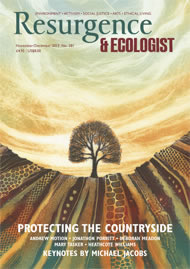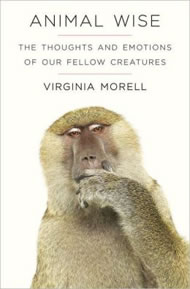Are animals the same as humans, or are they different? This is the perennial question. If animals are the same as us, then surely we should be treating them with the same respect we give humans and giving them equal rights with us. The animals don’t talk our language, but just how similar are they to us in their thoughts and feelings?
In his book The Descent of Man, Darwin argued: ”The difference in mind between man and the higher animals, great as it is, certainly is one of degree and not of kind.” And some of Darwin’s early followers went much further, such as Lauder Lindsay, who stated: ”In truth, the psychical difference between certain animals and certain men is much less obvious than between different individuals, classes, and races of man himself.”
Ultimately, speciesism is wrong not because animals think like us but because they suffer like us. The ethics of painism dictate that we treat the pains of all species equally, regardless of their intelligence. We don’t, after all, give greater moral rights to professors than to dunces!
After the modern animal rights revolution that started in Britain in the late 1960s (as part of the general revolution in social attitudes of that decade), there began a surge of scientific research, mostly in America, into the abilities of animals. There is now a huge body of scientific data to support the general contention that many animals, in addition to humans, are intelligent: for example, elephants who recognise themselves in mirrors, crows who bend wire into food hooks, and dolphins who rescue humans from sharks.
Two recently published books summarise this work: Virginia Morell’s Animal Wise: The Thoughts and Emotions of our Fellow Creatures and Vernon Coleman and Donna Antoinette Coleman’s The Wisdom of Animals. Both are easy reading, the first going into some detail while the second is extremely brief and without references. The Colemans conclude: “If man were truly the master of the universe, he would use his wisdom and his power to increase the comfort and happiness of all other creatures. But tragically, man has used his wisdom and his power to increase their misery.”
Virginia Morell’s conclusions are similar. We live, she warns, in the sixth great extinction, in which half the species on this planet may have vanished by the end of this century. Old-school cynics may dismiss the latest findings on animal minds as so much sentimental, romantic anthropomorphising; but ”why is it romantic to acknowledge that animals are thinking and feeling beings?” Morell asks. “Considering the weight of recent scientific evidence, I would argue that it’s actually realistic to do so. By embracing this larger understanding of our fellow creatures, we may yet succeed in overcoming the great tragedy of the Sixth Extinction.”
Furthermore, if the other animals can suffer like us, then surely they deserve parity. This is overdue.








